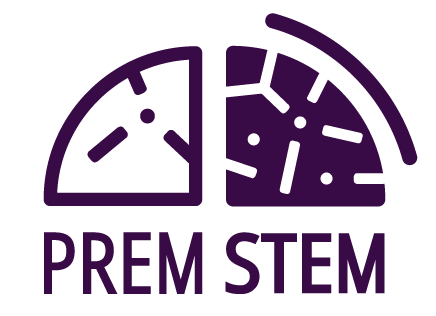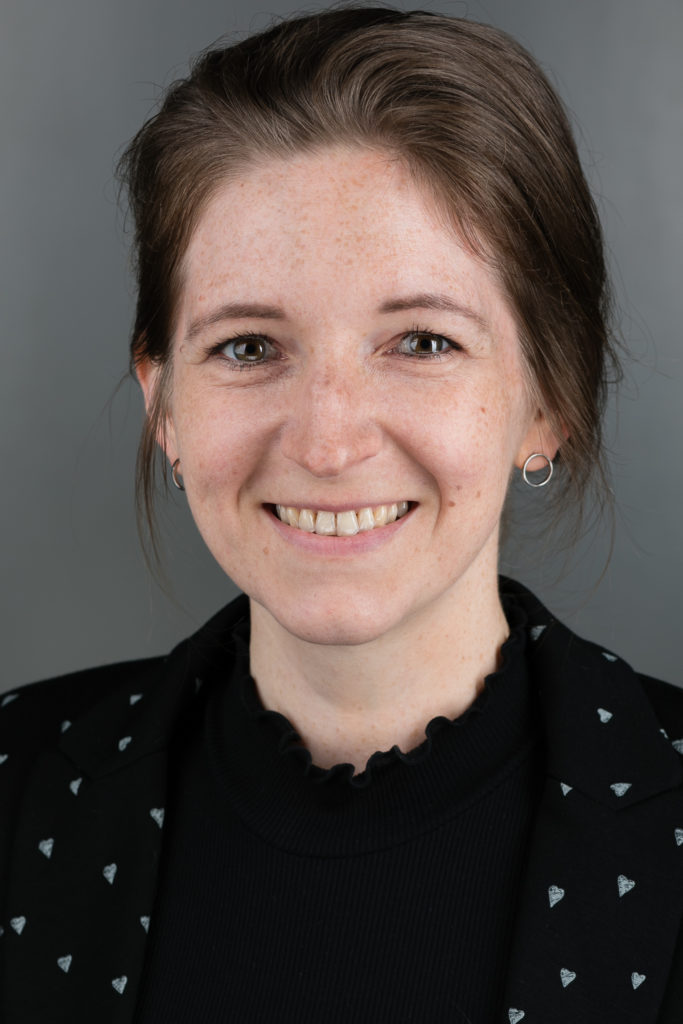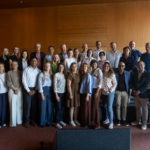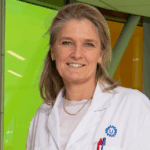What is your area of work and what attracted you to it?
I work as Senior Project Manager for Maternal and Newborn Health in the Scientific Affairs Department of the European Foundation for the Care of Newborn Infants (EFCNI). I am a social scientist specialising in international health care management and political science and have always had a strong interest for topics at the intersection of reproductive health, ethics and society. What I find attractive about this particular position is the mix of research, education/awareness raising and political work that we do. We are a lobby for those whose voices are often not heard: newborns and their parents. Contributing to the provision of better care leading to better health outcomes and quality of life is what drives me.
What do you enjoy most about your work?
Before joining EFCNI in April 2020, I gained experience in academia as well as the non-profit sector. What I have enjoyed most in my past and current work is the establishment of strong and sustainable partnerships to work on a joint mission. Be it for collaborative research, awareness raising campaigns or policy work – bringing together driven individuals in multi-national and intercultural teams is what adds value to my daily work. In the end, the greatest accomplishments are not based on individual effort alone but built on trusted partnerships and joint efforts. This is also why I am very optimistic that the PREMSTEM research project will result in great outcomes.
What is the most important aspect of your work?
At EFCNI, we aim to raise awareness for the growing challenge of preterm birth and to reduce the health and social inequalities linked to it. At the European level we initiated and are coordinating the European Standards of Care for Newborn Health to establish standards for key topics in newborn health. Yet also on a global level, we aim to create, empower and support a global patient voice in each region of the world while taking into account the respective cultural, historical and socio-economic backgrounds and needs of families. In 2018, GLANCE (GLobal Alliance for Newborn Care) was initiated for that purpose, which has been coordinated under the umbrella of EFCNI ever since.
What is your organisation’s role on the PREMSTEM project?
EFCNI is responsible for the dissemination and exploitation strategies of PREMSTEM throughout the project cycle. In that regard, and in close collaboration with colleagues from our partner organisations, we want to ensure that results are communicated to a large audience, also outside the scientific world, and in a way so that findings are accessible to and understandable for everyone. Furthermore we are in charge of setting up a patient/consumer advisory board who will advise us and help ensure that all information materials are written in a sensitive way reflecting the patients’ perspective.
What is innovative about PREMSTEM? Why is this research important?
The PREMSTEM research project is a global collaboration of excellent researchers developing a new regenerative stem cell therapy to repair brain damage caused by preterm birth. This is also known as encephalopathy of prematurity (EOP) for which currently no therapies exist. The aim is to reduce the enormous emotional, health and also economic burden this condition causes for the individuals affected, their families and carers, and society as a whole. Our strong network of science, industry, health care, and patient/parent organisations is unique and adds value to the research as a whole.
What is the most significant outcome you hope PREMSTEM can achieve?
My hopes for the PREMSTEM research project are twofold: On the one side, I wish for the development of a new therapy to reduce the long-term health burden and to enable the best possible start in life. On the other side, I also hope that the project will raise more awareness for the specific health needs of one of the most vulnerable groups of society and certainly of its youngest members: newborn infants.






